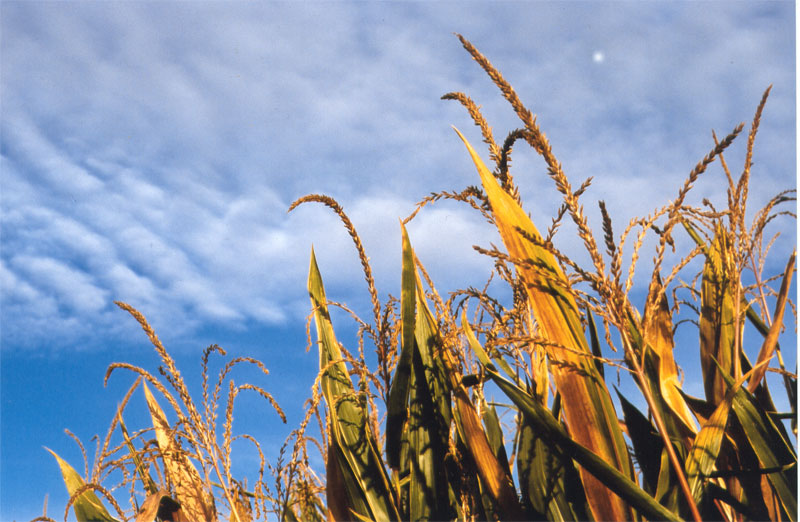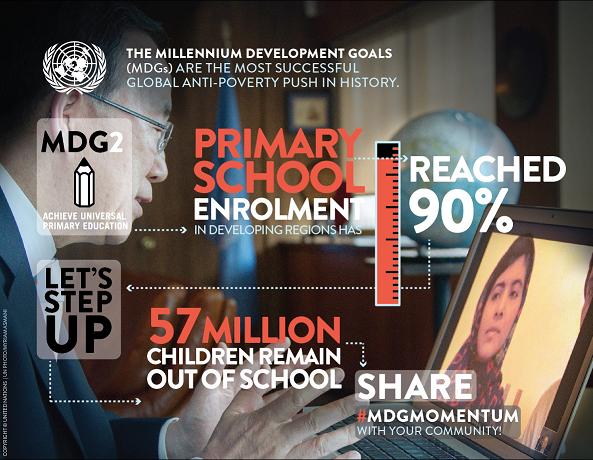
Rising global food prices do not only threaten the lives of individuals but threaten the political stability of entire regions. High food prices have been cited as one factor behind the current instability in Africa and the Middle East, and a spike in food prices this year risks the potential of even more widespread problems.[i] In February, food prices reached all time highs, according to the FAO Food Price Index, who cited price hikes in every category of food except for sugar.[ii] In the fall of 2010, news outlets sounded alarm bells that we were dangerously close to a food crisis. Now that prices have surpassed the previous food price records set in 2008, we are most certainly at the threshold of a crisis again. Understanding the causes of the global food crisis is the first step in combating it. This article will examine three short-to-medium term factors that have been cited as the leading causes of the 2011 food crisis.
Although climate change is projected to cause food shortages in the future, the current shortages are caused by particularly bad weather patterns. Russia’s wheat crop was destroyed by an unusually dry season, and bouts of wildfires and drought had an enormous impact on the amount of wheat and grain that could be harvested.[iii] As a result, Russia had to import around three million metric tons of feed grain last year.[iv]
Furthermore, high temperatures and excessive rain caused an unusually small crop in the American Corn Belt at the end of last year, the impact of which will bleed into this year. Corn, which is used in almost all American foodstuffs including animal feed for the nation’s meat industry, has a major impact on food prices. This means that corn prices are not only reflected in corn products, but in dairy and meat products as well. With less to feed the animals, farmers may only have the capacity to raise smaller herds.[v]
Weather anomalies in Brazil, China, Pakistan, and Australia have also contributed to rising food prices, putting farmers in particularly tough situations.[vi] One Bangladeshi farmer interviewed by Oxfam in 2009 said, “…temperature and weather do not seem right for what we have been doing traditionally. I do not know how to cope with the problems.”[vii]
Although bad weather may have been the catalyst for snowballing food prices, food policy has made matters significantly worse. Exceptions to the General Agreement on Tariffs and Trade (part of the treaty of the WTO) may be made in cases in which temporary relief is necessitated by a short supply of basic necessities.[viii] Unfortunately, the definitions of “temporary” and “short supply” remain vague within the agreement, and thus countries have begun to hoard their supplies, causing a subsequent artificial price hike.
These international agreements are so vague that the use of export bans in India has become commonplace. Although India is expected to harvest 83 million tons of grain for the 2010-2011 year, which is a relatively good yield for the country, the bans are like to continue for the fourth consecutive year.[ix] In December of 2010, an export ban on onions was also put in place.[x] Furthermore, Russia compounded the issue of soaring grain prices when they imposed export bans following their dry season in August of 2010. This was particularly troubling, as 11% of world exports come from Russia.[xi] Although the bans were slated to end by December of 2010, they have now been extended to mid-2011, or perhaps even after that. One journalist even linked the Russian export ban directly to the crisis of rising food prices in Egypt, where nearly half of the wheat supply is imported from Russia.[xii]
Finally, this year’s rising food prices are heavily impacted by high fuel prices. Since farming equipment relies on oil, farmers need to devote more money to raise the same amount of crops. In addition, the cost of transporting food has skyrocketed. When oil prices rise, the amount of money required to fill up the tanks of vehicles transporting the food rises accordingly. Moreover, oil is a main ingredient in many of the chemicals used on factory farms like pesticides and fertilizer. [xiii] Oil prices are now at a two and a half year high, and food prices are beholden to them. [xiv]
Not only are food prices linked directly to oil via production costs, but as oil prices skyrocket governments will be further incentivized to use biofuels, which take away from food supply[xv]. Only 8% of fuel used in the US for vehicles is biofuel, but 40% of corn crops are monopolized by their production. If all of the maize that goes into biofuels were diverted into food stock, The Economist estimates that corn supply could rise by 14%.[xvi] Therefore, governments and farmers are between a rock and a hard place when they are forced to choose between fuel types; this dichotomy highlights how there are no easy choices when dealing with globally connected markets.
The reasons for high food prices today are generally due to short-term issues, but global food security is an issue that will have far-reaching consequences for the foreseeable future. Today’s tough prices are caused by weather; tomorrow’s may be due to long-term changes in climate. Trade bans are making matters worse, but the greed of nations will never be a thing of the past. Oil prices are volatile, exacerbated by current circumstances in the Middle East, but supplies are limited and will only become tighter.
There are no clear options for food in the global markets, but it is clear that governments need to invest in long-term agro research. The Green Revolution, (a series of technological advancements in agriculture made between the 1940s and the 1970s) made exponentially larger yields possible, and only happened as a result of publicly funded research. Food supply must be at the forefront of governments’ and citizens’ minds to foster food stability in the long run.
[i] Nathanial Groneworld, “Record High Spurring Worries of Unrest,” New York Times. March 3 2011. http://www.nytimes.com/gwire/2011/03/03/03greenwire-food-prices-hit-record-high-spurring-worries-a-91940.html?scp=4&sq=food%20crisis&st=cse
[ii] FAO Food Price Index http://www.fao.org/worldfoodsituation/wfs-home/foodpricesindex/en/
[iii] Elizabeth Rosenthal, “Extreme Weather Sends Food Prices Soaring,” New York Times, January 5, 2011. http://green.blogs.nytimes.com/2011/01/05/extreme-weather-sends-food-prices-soaring/
[iv] “Russia Will Have to Import Feed Grain This Year,” New York Times, November 26, 1010. http://www.nytimes.com/2010/11/27/business/global/27bizbriefs-RUSSIAWILLHA_BRF.html
[v] William Neuman, “Rising Corn Prices Bring Fears of an Upswing in Food Costs,” New York Times, October 12, 2010. http://www.nytimes.com/2010/10/13/business/13corn.html
[vi] “High Food Prices Said Fortaste of Climate Shocks.” Reuters Africa, March 11, 2011. http://af.reuters.com/article/commoditiesNews/idAFLDE7291Q020110311?pageNumber=1&virtualBrandChannel=0&sp=true
[vii] “No Easy Fix.” The Economist, February 24, 2011. http://www.economist.com/node/18200678?story_id=18200678
[viii] Jeffrey Sachs,“To End the Food Crisis, the G20 Must Keep a Promise,” The Financial Times, February 17 2011. http://www.ft.com/cms/s/0/e5e854fe-3ad0-11e0-9c1a-00144feabdc0,s01=1.html#axzz1HveJenTi
[ix] Gregor Heard, “India Export Bans to Continue,” Farmonline, March 12, 2011. http://sl.farmonline.com.au/news/nationalrural/livestock/sheep/india-export-bans-to-continue/2099633.asp x “India Bans Onion Exports After Eye-Watering Price Rise.” BBC. December 21, 2010.
[x]http://www.bbc.co.uk/news/world-south-asia-12047496
[xi] “World Food Prices at Fresh High,” BBC. January 5, 2011. http://www.bbc.co.uk/news/business-12119539
[xii] Dmitry Zaks, “Russia May Extend Grain Export Ban: Minister,” AP. February 22 2011. http://www.google.com/hostednews/afp/article/ALeqM5grebO3MjYMnmnd7a7T9tt1lMlohA?docId=CNG.62d0f19e811f8964214ef942867ff5e8.731
[xiii]Michael Klare, “Oil Food Price Shock,” The Nation, March 3 2011. http://www.thenation.com/article/159165/oil-food-price-shock
[xiv] Svetlana Kovalyova, “FAO Warns on Oil as World Food Prices Hit Record.” Reuters, March 3 2011. http://www.reuters.com/article/2011/03/03/us-food-fao-index-idUSTRE72223C20110303
[xv] Svetlana Kovalyova “FAO warns on oil as world food prices hit record.” Reuters, March 3, 2011. http://www.reuters.com/article/2011/03/03/us-food-fao-index-idUSTRE72223C20110303



